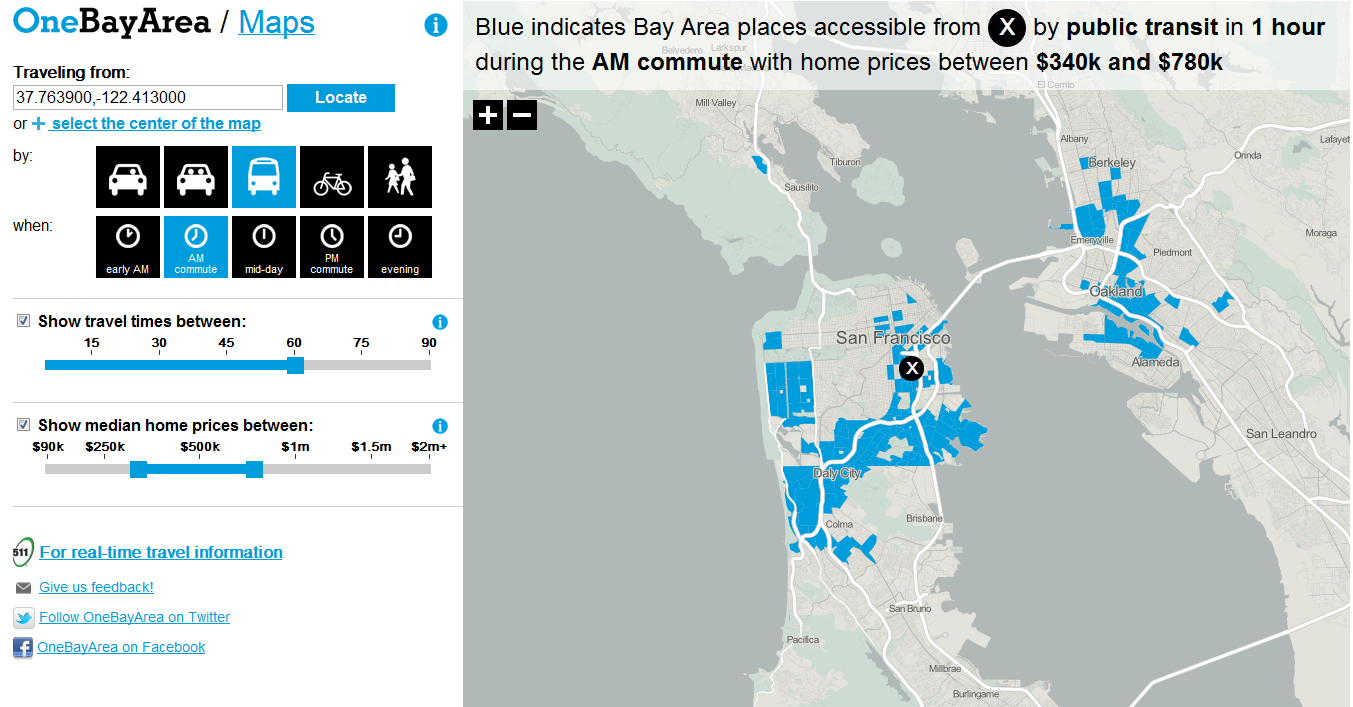Can I Work There if I Live Here?
There are really only a few, perhaps ten or so, major decisions that people take in their lives that have such significant and long-lasting impact on the quality of their lives, their happiness, their financial and physical health, and even their legacies, that they usually require long and careful consideration before they are taken.
Where to go to college, what career path to pursue, what kind of job to take, where to live, whether or not to continue to date that slacker in hopes you can change him, (cut him loose, you know he will never change), and so on.
But for job and career related decisions, at least for now when the majority of jobs still require reporting most days to a central work location, be it an office, store, factory, etc. - geography and it's associated impact on the decision process is an ever-present but at times under appreciated part of the complex dynamic. Sure, companies and candidates both spend lots of time evaluating skills match, career objectives, company culture, salary and benefits, and the like, but often questions like 'How long will it take me to commute each day?' or 'Can I afford to live anywhere near where the facility is?' or 'Are there any childcare options on the way to the office?', are not typically emphasized in interview and assessment process. Sure the candidate thinks about these issues some, but often only as a secondary set of considerations to the actual job itself, and usually the candidate is left to sort out the answers to these questions on their own.
And these are critically important questions, ones that will effect the potential employee's likelihood for success, and certainly their quality of life outside of work. So how can organizations try to better help candidates address these concerns, as well as provide some insight to the challenges that the candidate (or even the existing employee base), might be facing in terms of geography, commuting time, and other real-world considerations?
How about with an interactive map that shows office locations, median real estate costs, average commute times, and other practical, real, and really important data points to help candidates and employers make more informed decisions? Take a look at an example of what such a map would look like, this one for the San Francisco area: (click here, or on the image to try the map out yourself).
This map was created by Stamen, a Design and Technology studio from San Francisco.
To work with the tool, simply plot your starting point or destination point on the map, then on the left side, select from different modes of transit, ranging from car sharing to biking to walking. After that, you can indicate the desired length of commute, and the housing price range you can work with. After your selections are made, the map then shades in all the neighborhoods that lie within your parameters. It tries to help answer the basic question - 'If I live here, can I afford to work there?'
For people and potential employees not familiar with the area, this kind of a tool is a fantastic resource, and one that I could see a large employer in any given market or geography using to both inform, educate, and even attract candidates.
If you are say recruiting hard to convince a candidate to leave an area like San Francisco to come to perhaps, Birmingham, (cultural capital of the South), you could clearly and in an interactive manner demonstrate some of those 'quality of life/cost of living' angles that you play up on the phone. And additionally, having access to this kind of interactive data would better inform company leaders planning the next office location, or possible re-organization. You could easily develop this tool a bit further to plot the addresses of employees and build some intelligence to calculate changes in average commute time, energy use, and even impact on company happiness (a stretch, but just go with it), that would accompany a physical office move.
What do you think - would like to have a tool that allowed you and your candidates to better assess more of the real-life variables in the recruiting process?
Have a great weekend!

 Steve
Steve

Reader Comments (3)
Yes, give the candidate or interested person this tool, right there on your site or page. They are increasingly going to go find such a tool if you don't offer it, and as that happens, the absence of the helpful tool could be interprted as either reticence to let people know or lack of awareness that such tools even exist.
No surprise your example is from the Bay Area, Steve, where people rightly won't take a job in the city if they live in the East Bay and vice versa. I used to scorn their living their lives by traffic patterns, until I experienced the worst of it personally, and now support them completely.
Awesome idea. But companies can also do some of it more cheaply but making their EAP programs (which offer information and referrals to everything you mention) open to their candidates. Hurdles to overcome, I'm sure, but a smart move. Companies who do that or make the investment in the kind of tool you show will definitely find it easier to hire the best people.
Bruce - thanks and I agree, by creating (I bet you could hire some smart technical interns to build most of it), and placing it as part of the candidate resources on the careers page, a company would I think be doing a great service as well as getting a more robust screening capability
Bill - great idea about the EAP. I wonder if anyone actually does that, or any EAP providers market their offerings in that way.